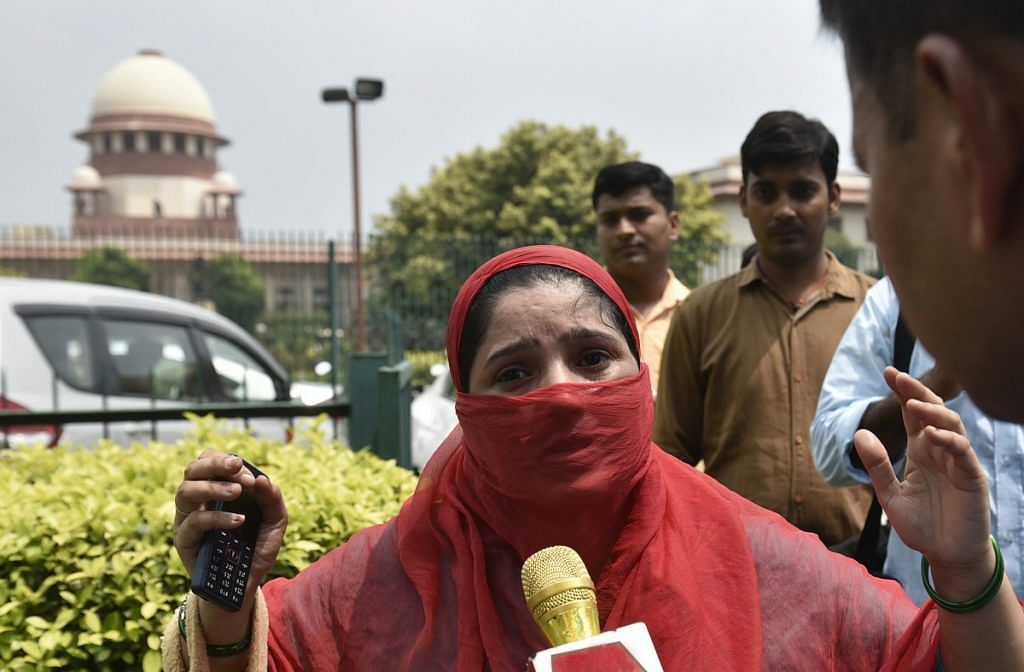ThePrint asks:
Is criminalising triple talaq a legal necessity or a political gambit?
The NDA government’s self-appointed posture of legislating to criminalise triple talaq clearly shows less-than-honourable motives. It doesn’t behove a government to act in such a manner.
It is a clear misreading of the Supreme Court judgment to first describe triple talaq as an instantaneous form of divorce that the Act declares as void. The fact is that such a talaq has been void since the Supreme Court judgment, irrespective of its status before then.
Therefore, the pronouncement of ‘talaq’, three times in quick succession, is a meaningless exercise with no legal implications. What sense does it make to impose criminal sanctions for its utterance?
Furthermore, does it not add greater bitterness and disquiet among people? How does an incarcerated former husband (he would indeed be one) fulfil the duties imposed on him by law to maintain his divorced wife and children?
Here are other sharp perspectives on the question:
Zakia Soman, founding member of Bharatiya Muslim Mahila Andolan.
Faizan Mustafa, vice-chancellor of NALSAR University of Law, Hyderabad.
Hilal Ahmed, associate professor at CSDS.
We must not forget that a rejection of triple talaq does not mean that the pronouncement is not to be treated as a single talaq that triggers the process of parting of husband and wife. A divorce is implied unless it is reversed by the husband in the iddat period of three months.
Traditional family structures in all societies have both positive and negative dimensions. Resorting to criminal law might not be the best way of encouraging reform in society, particularly when no clear benefit or advantage accrues to the women.
With or without triple talaq, the divorced woman remains entitled to benefits under The Muslim Women (Protection of Rights on Divorce) Act, 1986. A person would deny that at his own peril.
Besides, the world is moving towards ‘no fault divorce’ and de-criminalisation of disparate human relations (Section 377 of the Indian Penal Code).
The government is undermining widely preferred principles for a policy of questionable politics. We have come full circle from appeasement to demonisation of diversity.
Salman Khurshid is a politician, senior advocate, author and law teacher.
